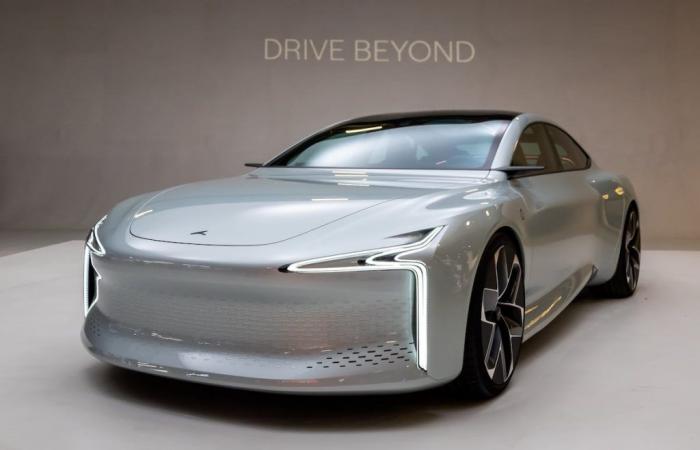This is big news for the energy transition sector. Machina, Hopium’s hydrogen car has just successfully passed its road tests in real conditions. The French company confirmed this via a press release published on October 7, 2024.
The Hopium Machina passes its road tests
Hopium marked a decisive step forward with the successful road testing of the Machina, carried out on October 7, 2024. These tests, which took place on the UTAC circuit, put the 100 kW fuel cell to the test under varied conditions: strong accelerations, decelerations, high speed and various weather conditions. The results are conclusive, and the Machina has demonstrated its ability to carry out sessions without interruption.
Stéphane Rabatel, CEO of Hopium, said: “ We are delighted to have reached this milestone. It is the result of several years of R&D but also of all the expertise and know-how of our teams since the origin of Hopium. I sincerely want to thank them and salute their work and their involvement because without them, none of this would have been possible.» These tests validate the quality of the hydrogen fuel cell technology and allow Hopium to move closer to the commercialization phase, planned for 2028-2030.
A credible alternative to thermal engines
With its 1,000 km of autonomy, the Hopium Machina is positioned as a serious alternative to thermal engines, but also electric, the latter offering much better autonomy. By integrating a 100 kW hydrogen fuel cell, this luxury vehicle offers impressive performance while being completely free of polluting emissions. Unlike traditional electric vehicles which require relatively long charging times, the Machina offers a major advantage: refueling with hydrogen can be done in just a few minutes, making the user experience closer to that of thermal vehicles. The fact remains that hydrogen is still very expensive to produce, and the deployment of the station network is very slow.
« These tests validate not only the quality of our fuel cell technology, but also our commitment to carbon-free and responsible mobility. », nevertheless proudly insisted on emphasizing Stéphane Rabatel. With this innovation, Hopium intends to meet the demands of motorists in terms of comfort and performance, while actively participating in the reduction of CO₂ emissions. The French company has also set itself the objective of developing 200 kW hydrogen fuel cells intended for trucks, buses, and other heavy vehicles. Hopium thus confirms its position as leader in this new form of carbon-free mobility.






